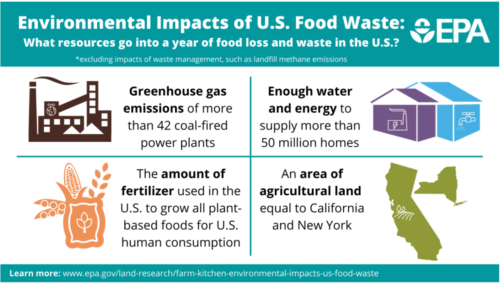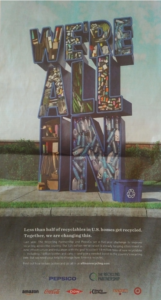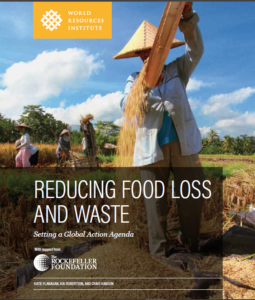Food waste: much talk, some action
I’ve been collecting items on food waste. Here are four recent ones.
I. EPA: From Farm to Kitchen: The Environmental Impacts of Food Waste. The Infographic Summary:

II. WWF: Driven to Waste: The Global Impact of Food Loss and Waste on Farms.
Driven to Waste: Global Food Loss on Farms, a new report from WWF and Tesco, reveals an estimated 2.5 billion tonnes of food goes uneaten around the world each year. That is an increase of approximately 1.2 billion tonnes on the established estimates of 1.3 billion tonnes wasted each year. These new estimates indicate that of all the food grown, approximately 40 per cent goes uneaten, which is higher than the previously estimated figure of 33 per cent.
III. Washington State Department of Ecology: Use Food Well Washington: A roadmap to a more resilient food system through food waste reduction].
Food waste is one of the greatest challenges of our time, with significant environmental, social, and economic impacts. Thankfully, our research shows the potential benefits to addressing food waste in Washington are just as enormous (Fig. 1).
Our calculations indicate Washington generates more than one million tons of food waste annually, with a large portion (about 35 percent) being edible food going into landfills.
IV. How are food manufacturers tackling waste management? As 2022 gets underway, waste management has moved from arguably to inarguably never more important…. Read more



